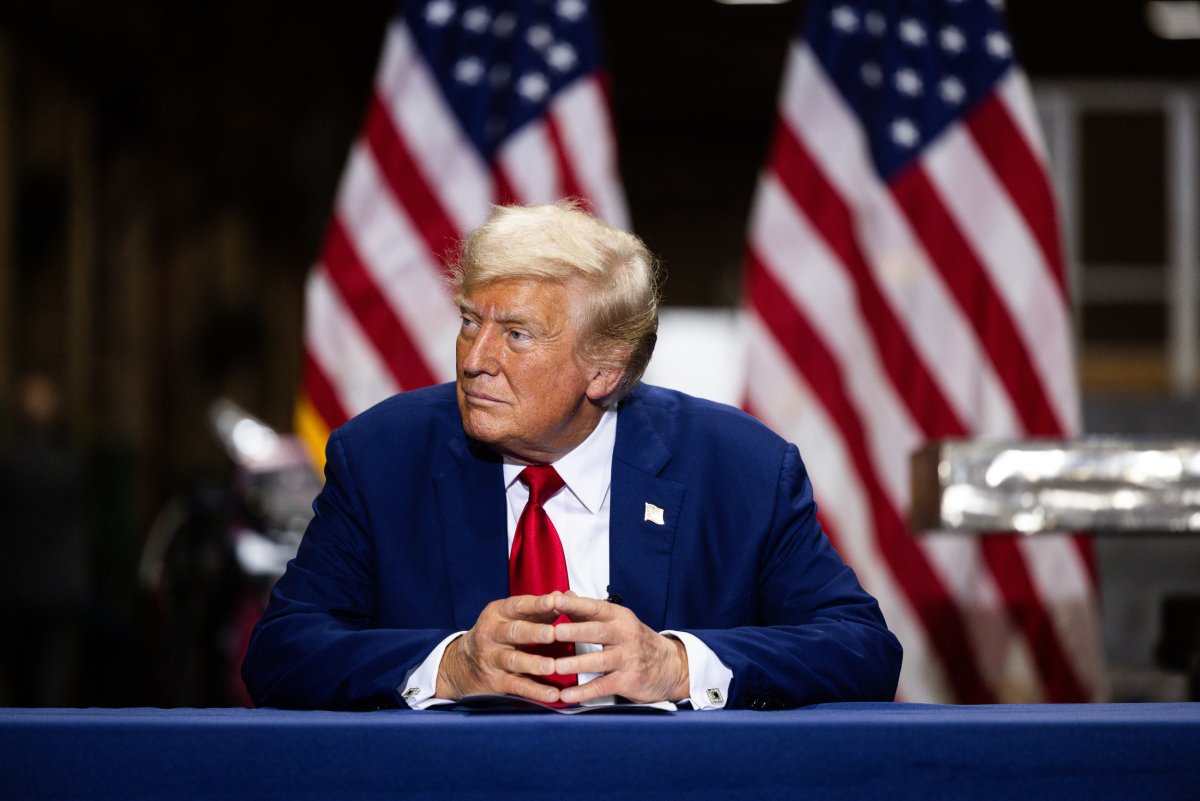In an unexpected twist in the political landscape, Donald Trump has addressed the controversy surrounding manipulated AI images featuring Taylor Swift. The former president, who is currently campaigning for the presidency again in 2024, shared these images on his social media, believing they were authentic endorsements from Swift herself. This incident not only raises questions about the ethical implications of AI in politics but also about celebrities' control over their likenesses in the digital age.
The images in question, which falsely portray Taylor Swift endorsing Trump, sparked widespread discussion. When questioned about the possibility of legal action from Swift, Trump appeared unbothered and claimed he was unaware that the images were not from her. "I don't know anything about them, other than somebody else generated them," he stated. This comment highlights a growing concern regarding the use of AI-generated content and its potential to mislead the public.
As AI technology continues to evolve, it creates significant challenges not just for political figures but for all public personalities. Trump warned about the dangers of AI, stating, "It’s a little bit dangerous out there." His remarks echo a broader conversation about the implications of artificial intelligence in media and its role in shaping public perception. The situation further emphasizes the importance of verifying sources and the authenticity of information in our increasingly digital world.
Understanding the Impact of AI on Public Figures
The rise of AI technology has transformed how we perceive and interact with public figures. Political campaigns and endorsements can now be created or manipulated with ease, raising ethical questions about consent and authenticity. Celebrities like Taylor Swift, who have significant influence, find themselves at the mercy of these technological advancements.
In recent years, AI-generated content has become a tool for both support and criticism. For instance, while it can be used to create engaging political advertisements, it can also spread misinformation, as seen in Trump's case. This duality of AI's potential makes it crucial for public figures to remain vigilant and proactive in protecting their image and voice.
Moreover, the legal ramifications surrounding AI-generated content are still being defined. With no clear guidelines, it poses challenges for celebrities seeking to defend their likeness and brand. As this technology advances, understanding its implications becomes essential for everyone involved in the media landscape.
The Role of Celebrities in Political Endorsements
Political endorsements by celebrities can significantly sway public opinion, making their involvement crucial in elections. However, when these endorsements are misrepresented, it can lead to confusion and distrust among voters. This was evident in the recent controversy involving Trump and Swift, underscoring the importance of transparency in political messaging.
As public figures like Taylor Swift navigate these waters, they face challenges in maintaining their personal brand while engaging with political matters. The intersection of celebrity culture and politics has become increasingly complex, especially in the digital era where misinformation can spread rapidly.
Swift's silence on the issue raises questions about how celebrities should respond to such incidents. Should they engage directly, or is it more prudent to allow the situation to unfold? Ultimately, finding the right balance between engagement and personal branding is a delicate task for many public figures in today’s media landscape.
Images and Visuals

Legal Considerations and Future Implications
The controversy surrounding the AI-generated images brings to light the need for clearer legal frameworks regarding digital likeness and endorsements. As technology advances, so do the methods of misrepresentation. This calls for a proactive approach from legislators and industry leaders to protect both the public and the personalities involved.
Public figures must be aware of their rights when it comes to the use of their image and likeness. Without proper legal protections, they may find themselves vulnerable to exploitation and false narratives. The growing prevalence of AI-generated content further complicates this issue, necessitating a dialogue on ethical standards and best practices.
The future of political endorsements and celebrity involvement in campaigns will likely hinge on how well these challenges are addressed. As voters become more discerning, the integrity of information will become paramount, urging celebrities and politicians to advocate for transparency in all forms of communication.
Final Thoughts on AI and Celebrity Endorsements
The intersection of AI technology and celebrity endorsements presents both opportunities and challenges. As we navigate this evolving landscape, it is crucial for public figures to understand the potential risks involved in sharing their likeness online. The recent incident involving Donald Trump and Taylor Swift serves as a reminder of the power of media and the need for vigilance in protecting personal brands.
Ultimately, as technology continues to shape our understanding of authenticity and representation, both celebrities and politicians will need to adapt. Collaboration between legal experts, tech developers, and public figures will be essential in creating a safer digital environment for all.
As we look to the future, keeping a close eye on how AI influences public perception will be vital. Will we see stronger legal frameworks emerge? Only time will tell, but one thing is for certain: the conversation surrounding AI and celebrity endorsements is far from over.
A Florida Man Arrested For Throwing A Toilet At A Board Of Education Building
An Adorable Chihuahua Puppy Turns A Man Into A "Dog Person"
Ivanka Trump Defies Political Tensions To Attend Taylor Swift's Eras Tour


